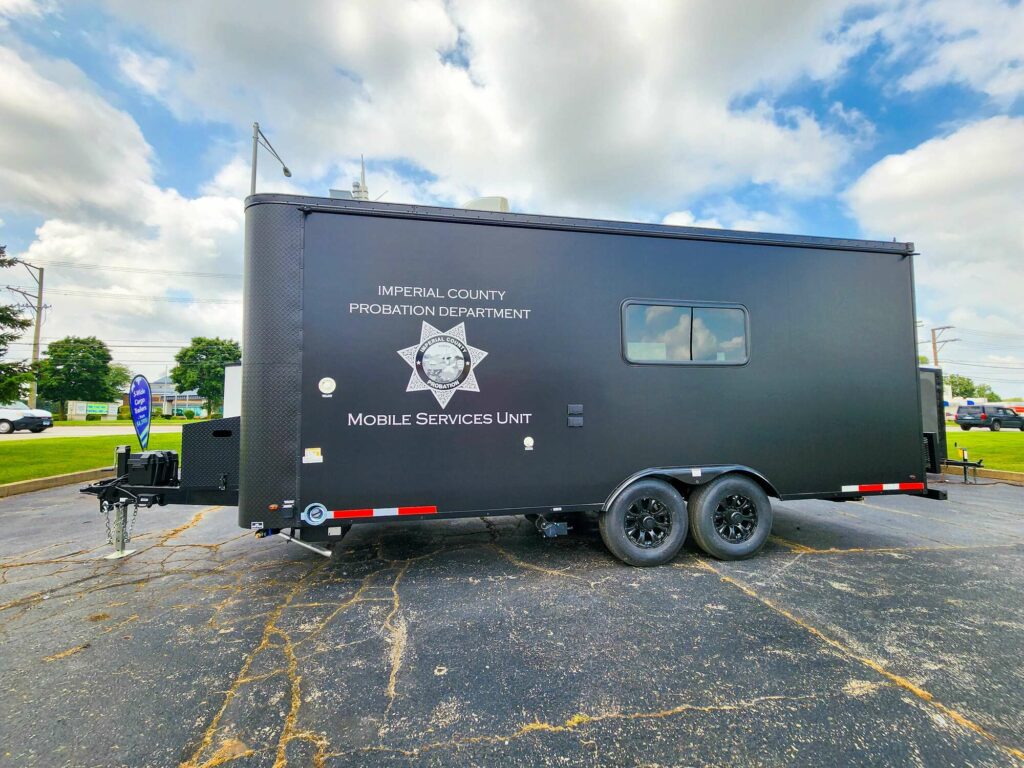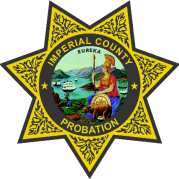Adult Services
Adult Services Information
The Adult Investigation Services Division provides direct criminal investigation services to the Superior Court in reports written by deputy probation officers. Reports are provided in the case of defendants who are awaiting a judgment of guilt or innocence (Pre-Plea reports) or who have been found guilty and are awaiting the Court's disposition of their case (Pre-Sentence Investigation reports). These reports include factual summaries of the offense, the social and criminal history of the offender, the defendant's statement, the statement of the victim or other interested parties, restitution information and an evaluation of the offense and the offender.
Both Pre-Plea and Pre-Sentence reports include a discussion of the defendant's eligibility for probation (the law prohibits probation in some cases) and a recommendation as to whether or not probation should, in the department's opinion, be granted. If probation supervision is recommended, appropriate Terms and Conditions are also suggested. If a defendant has been sentenced to prison and a report has not previously been ordered, a Post-Sentence report is prepared to provide prison officials with the offense summary and criminal/social history of the offender they are receiving.
Adult offenders are placed on probation by the Superior Court, typically for a three year period. Probation can range from one year (misdemeanors) to five years (most serious). The level of supervision each person receives is based upon an evaluation of the probationer's risk to the community and services needed. Probationers who present the highest risk to the community are given the most intensive supervision.
Adults released on probation in the community may have spent some time in the County Jail as a condition of probation and may be required to participate in drug and alcohol programs, treatment programs, counseling, vocational training and/or job placement programs. A probationer may be contacted by the supervising deputy probation officer at home, on the job or in the community. In addition, the probationer may be required to submit to drug/alcohol testing and to permit search of his or her personal property for contraband. The payment of restitution to victims and/or fines and fees is also an important part of supervision caseloads.
On October 1, 2011, Assembly Bill 109, California Public Safety Realignment, went into effect. This legislation reassigned three groups of offenders previously processed through the State Prison and Parole System to California counties.
The first group includes convicted offenders receiving sentences for new non-violent, non-serious, non-sex offender crimes that are served locally, one year or more. Offenders in this category do not have prior violent or serious convictions.
The second group involves individuals released from state prison and coming under Probation Department supervision; offenders in this category may have had prior convictions for violent or serious crimes. The third group includes State Parole violators who are revoked to custody. With the exception of offenders sentenced to life with parole, this group is being revoked to local County Jail instead of State Prison.
Senate Bill 678, a precursor to AB 109, called for the local implementation of Evidence-Based Practices (EBP) to reduce the number of probation failures resulting in prison commitments. These are approaches and interventions that have been scientifically tested in controlled studies and proven effective.
EBP implies that there is a definable outcome(s); it is measurable and evaluated based on recidivism, victim satisfaction, and other relevant factors. To date, SB 678 funds have been used to purchase the Noble Case Management System (an evidence-based actuarial risk and needs assessment program), train staff to implement the assessment, provide for a modest amount of intensive supervision, and build capacity within the Department to implement “Thinking for a Change,” a cognitive behavioral training for those under supervision.
These programs incorporate evidence-based principles, including the use of validated assessments and matching services to individuals risk levels. They also provide foundational data-driven systemic interventions that safely reduce jail reliance and assist with the successful transition of oversight for non-serious prisoners to the county.
Specialized Adult Services
PRCS officers supervise local clients who, prior to AB109 and AB117, would have been released from CDCR and subsequently supervised by State Parole. Clients are eligible for PRCS upon release from CDCR, provided their most recent conviction is not a Serious Felony pursuant to PC1192.7. Upon release from CDCR, clients are transported immediately to the Probation Department’s Community Transition Center, where they participate in assessments designed to immediately identify and address the risks and needs of the reentering client, mitigate the client’s vulnerability to risks that endanger his/her chance of success, and provide access to a continuum of services. AB109 funding ensures clients in need of substance abuse treatment, mental health, and other intervention services receive them.
Probation Officers closely monitor sex offenders, released from prison, who score 3 or lower on the Static 99 assessment. The officers often use a multi-disciplinary approach that includes the Probation officer, treatment provider, polygraph examiner, and input from a victim or victim advocate. Additionally, the use of a GPS monitor may be used, at the discretion of the officer, to assist in monitoring PRCS sex offenders.
Felons sentenced under PC 1170(h) who are not ordered to serve their entire sentence in county jail, and instead receive a sentence that is split between jail and local supervision by Probation or a sentence to be served entirely under Probation supervision are assigned to MS. Clients assigned to MS are supervised at the high risk supervision level and receive custody credit for each day completed under MS in the community. Clients participate in substance abuse treatment, mental health, and other intervention services as deemed necessary and participate in regularly scheduled Review Hearings, MS Court. Split sentences allow for Probation to provide supervision and case-management services to assist the client in his/her community re-entry.
Proposition 36, also known as the Substance Abuse Crime Prevention Act (SACPA), was passed by voters in November 2000, and intends to “divert from incarceration into community based substance abuse treatment programs nonviolent defendants, probationers and parolees charged with simple drug possession offenses”. Those drug users charged with certain narcotic offenses are mandated to probation supervision and drug treatment. Eligible offenders must participate in and complete a drug treatment program not exceeding 9 months with up to 3 additional months of aftercare treatment services.
Probation Officers initiate court action when terms of probation are violated, however, the primary emphasis of the Proposition 36 Officer is directed toward helping the probationer achieve sobriety and obtain employment, thereby becoming a productive member of the community.
Deputy Probation Officers work with the Courts, police, victim advocates, and other community resources to provide services to domestic violence cases and to comply with the California Penal Code Section 1203.097.
California’s military diversion program, establishes a pretrial diversion program for current and former members of the U.S. military who are charged with a misdemeanor offense. Under Penal Code, section 1001.80, subdivision (a), the military diversion program applies to a defendant accused of a misdemeanor offense, who was or currently is a member of the United States military, and who may be suffering from sexual trauma, traumatic brain injury (TBI), post-traumatic stress disorder (PTSD), substance abuse, or mental health problems as a result of his or her military service." If a defendant meets this criteria, the Court may place him or her into a pretrial diversion program.
Existing law allows individuals charged with specified crimes to qualify for deferred entry of judgment. A defendant qualifies if he or she has no conviction for any offense involving controlled substances, the charged offense did not involve violence, there is no evidence of a violation relating to narcotics or restricted dangerous drugs other than a violation that qualifies for the program, the defendant’s record does not indicate that probation or parole has ever been revoked without being completed, and the defendant’s record does not indicate that he or she has been granted diversion, deferred entry of judgment, or was convicted of a felony within 5 years prior to the alleged commission of the charged offense. Under the existing deferred entry of judgment program, an eligible defendant may have entry of judgment deferred, upon pleading guilty to the offenses charged and entering a drug treatment program for 18 months to 3 years.
If the defendant does not perform satisfactorily in the program, does not benefit from the program, is convicted of specified crimes, or engages in criminal activity rendering him or her unsuitable for deferred entry of judgment, the defendant’s guilty plea is entered and the court enters judgment and proceeds to schedule a sentencing hearing. If the defendant completes the program, the criminal charges are dismissed. Existing law allows the presiding judge of the superior court, with the district attorney and public defender, to establish a pretrial diversion drug program.
The Interstate Compact for Adult Offender Supervision (ICAOS) is a federal program that requires active supervision of certain clients who wish to move to a state other than the one in which they were convicted. In 2004, ICAOS established strict guidelines for travel and transfer of clients across state lines.
For additional information please visit the Interstate Commission for Adult Offender Supervision website.
A conservatorship is a court case where a judge appoints a responsible person or organization (called the “conservator”) to care for another adult (called the “conservatee”) who cannot care for himself or herself or manage his or her own finances. For additional information please visit the Judicial Branch of California website.
This program involves using systems based radio frequency or global positioning system technology to monitor offenders’ locations and movements in community-based settings. The goal is to increase compliance and reduce recidivism.
“The Imperial County Probation Mobile Unit will be utilized to provide essential services and support to individuals on probation, often within their own communities rather than requiring visits to a traditional probation office. This innovative approach aims to reduce barriers to access by bringing resources directly to probationers, especially those who may face transportation challenges or other obstacles.
The mobile unit will offer a convenient, community-based setting where probation officers can conduct check-ins, provide case management, and connect individuals with supportive services. By meeting people where they are, the Probation Mobile Unit aims to strengthen compliance, promote rehabilitation, and support successful reintegration into the community.”

Mobile Services Unit Location Schedule
“In the event that the mobile unit is unavailable in your area due to unforeseen circumstances, it remains your responsibility to make every effort to report to probation.”
- Wednesday Salton City 9:30 a.m. - 11:30 a.m.
- Wednesday Westmorland 1:00 p.m. - 3:00 p.m.
- Thursday Brawley 8:45 a.m. - 12:00 p.m.
- Tuesday Winterhaven 9:30 a.m. - 11:30 a.m.
- Tuesday Holtville 1:00 p.m. - 3:00 p.m.
- Thursday El Centro 8:30 a.m. - 12:00 p.m.
- Wednesday Niland 9:30 a.m. - 11:30 a.m.
- Wednesday Calipatria 1:00 p.m. - 3:00 p.m.
- Thursday Imperial 8:30 a.m. - 11:00 a.m.
- Wednesday Calexico 8:30 a.m. - 12:00 p.m.
52 Week Batterers’ Intervention Programs
A Batterers' Intervention Program is a set of 52 weekly domestic violence classes. Persons convicted of certain California domestic violence offenses must complete this program as part of their terms of probation.
The Imperial County Probation Department certifies a number of local programs that probationers may enroll in to comply with their terms and conditions of probation:
Adult Services Events
Adult Re-Entry Summit
The Imperial County Probation Department’s Day Reporting Center hosts an annual Adult Re-Entry Summit in partnership with local agencies and organizations to provide information to the probation population, incarcerated individuals, and parole clients about services and programs available to them within the community. The Re-Entry Summit continues to be an important event at the Probation Department and allows our clients to connect with local, private, and public agencies to better assist them in their journey to rehabilitation and to reduce recidivism within the Imperial County.
Adult Services Frequently Asked Questions
You will know the Probation Officer that is assigned to your case when you report to the Probation Department after being sentenced or released from jail.
The length of probation supervision is determined by the Court and probation grants can be for three to five years.
Search and Seizure is a condition of probation that can be ordered by the Court, and allows a probation or law enforcement officer to search a defendant's person or personal property without first obtaining a search warrant. If contraband is found, it can be seized and used as evidence in a probation violation or new law violation. A violation can also result if a defendant who has been ordered by the court to 'submit to search and seizure' refuses to allow the search of his or her property.
California Penal Code Section 29800(a)(1) states it is a felony for any person convicted of a felony to be in possession of a firearm. In addition, anyone who has been convicted of certain misdemeanor offenses cannot own or possess a firearm for a period of 10 years pursuant to Penal Code Section 28905.
The Probation Officer or the Court may allow a defendant to live in a different county, however, approval must be given prior to leaving Imperial County. If given permission to live outside the county, the case must be transferred to the defendant's county of residence if it has been established that the defendant will reside there for the duration of the grant of probation. Once the case has been transferred, it will be under the jurisdiction of the defendant's county of residence and the defendant will be assigned to a Probation Officer in that county.
Travel to a different state is allowed only with the prior approval of your Probation Officer. Anyone who wishes to move permanently to a different state must complete an application for Probation for Interstate Transfer and Supervision. Only when the application has been approved by both the sending and receiving states will the defendant be given permission to move permanently.
The Day Reporting Center (DRC) has many resources available to Probation clients to assist them in their job search.
You can register to vote and vote if you are:
- A United States citizen and a resident of California,
- 18 years old or older on Election Day,
- Not currently serving a state or federal prison term for the conviction of a felony, and
- Not currently found mentally incompetent to vote by a court
Persons with a criminal history who can register to vote:
- In county jail:
Serving a misdemeanor sentence (a misdemeanor never affects your right to vote)
Because jail time is a condition of probation (misdemeanor or felony)
Serving a felony jail sentence,
Awaiting trial
- On parole
- On probation
- On mandatory supervision
- On post-release community supervision
- On federal supervised release
- A person with a juvenile wardship adjudication
Additional details can be obtained from the link below
Convictions for certain crimes require a minimum period of time on probation. A person on probation who wishes to have their case considered for early termination should contact their attorney. If they are eligible they can request that a court hearing be scheduled.
The Probation Department does not release this information to the public due to confidentiality issues. The Probation Department can accept information from the public to assist in supervising cases and effectively protecting the community. Crime victims are also allowed access to certain information, such as restitution payments, and current probation status of the defendant.
Unless the Court has previously authorized the medical use of marijuana via the terms and conditions of probation, those probationers who have a written physician's recommendation from their primary care or treating physician for medical marijuana must complete the Probation Department's process to seek a modification. If probation is modified, the defendant will be directed to carry a copy of the modification order authorizing the medical use of marijuana. All requests should be brought to the supervising Deputy Probation Officer's attention so the full process can be outlined.
If you are subject to supervision by the Probation Department, referrals to appropriate mental health or substance abuse counseling can be made by your Probation Officer. If you are not currently on probation, you can contact Imperial County Behavioral Health or visit their website.
Domestic Voilence
At sentencing the Court will either direct you to a specific domestic violence program or your assigned Probation Officer will refer you to a program during your first reporting day. It is the responsibility of the probationer to register to a certified domestic violence program.
It is each defendant's responsibility to attend and pay for classes. However, programs will often work with defendants who request a modification in paying for the program.
No, each participant must attend the program for 52 individual weeks per California law.
Investigation Services
The investigating Probation Officer will contact you by mail, e-mail or telephone. You may also call the Probation Department and someone will be glad to answer questions you may have.
California Penal Code Section 1203(b)(1) states that if a person is convicted of a felony and is eligible for probation, before judgement is pronounced, the court shall immediately refer the matter to a probation officer to investigate and report to the court, at a specific time, upon the circumstances surrounding the crime and the prior history and record of the person, which may be considered either in aggravation or mitigation of the punishment.
The Probation Department submits a recommendation to the Court for sentencing based on various factors, including the law, severity of the offense, prior criminal history, acknowledgement of wrongdoing, remorse, attitude and cooperation, social history, public safety, etc. Plea agreements are considered, but an investigating Probation Officer's evaluation may lead them to a different recommendation to the Court.
- Adult Information Sheet
- Proof of residence
- Proof of employment/verification of income of financial support
- Proof of medical of mental illness
- Valid driver's license of state identification card
- Proof of US citizenship of immigration status
Adult Community Work Service Program
Community service work is volunteer work performed at an authorized non-profit or government agency. The Court, in certain cases, will allow offenders to participate in the CSWP in lieu of paying a fine. The Court also may order that you complete mandatory CSW hours. In some cases, you may be referred to the CSW program by your Deputy Probation Officer (DPO). The purpose of the program is to provide adult offenders the opportunity to perform valuable work service to the community as a consequence of their offense. For probationers looking for additional information, please contact your assigned Deputy Probation Officer.






